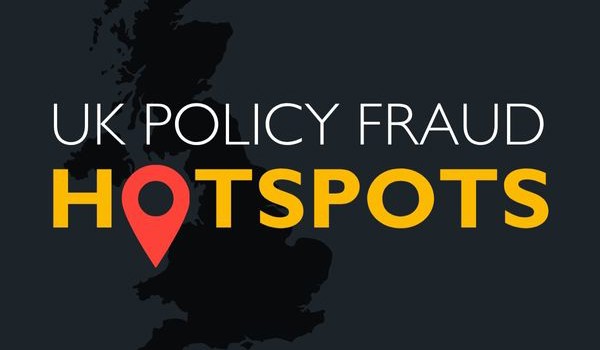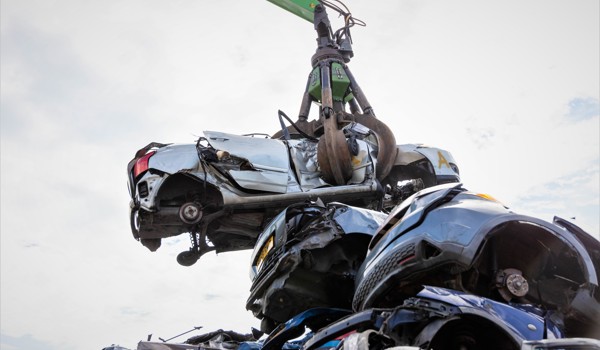Top tips for avoiding a crash for cash scam this winter

If you’re driving on the road this winter, it’s important to do all you can to stay safe. As not only are collisions more likely because of challenging road conditions, but crash for cash scammers can take advantage of this to cause an accident.
So, we’re sharing our top tips to help you keep your cool when driving and make it harder for fraudsters to catch you out.
First things first, what's a crash for cash?
Crash for cash is when criminals cause collisions to get compensation. By using dangerous maneuvers, they can cause innocent drivers to crash and appear at fault of a collision.
The most common technique this fraudster uses is slamming their brake so the innocent driver behind can’t stop in time. The scammer may also have an accomplice in a second vehicle who is driving erratically, just to have an excuse for braking suddenly and divert suspicion.
Giving way is another common tactic. This involves unsuspecting motorists being encouraged to pull out of side roads, so the side of their vehicle is then driven into.
But crash for cash scams are also evolving…
A new scam known as clip for cash is on the rise. This involves fraudsters throwing objects at the side of vehicles to create an impact sound and flashing drivers to get them to stop. Victims are then accused of clipping a wing mirror and cash is demanded to cover the damage.
Also, look out for a new scam involving moped drivers. These two-wheel con artists are discreet, and often hide behind other vehicles before suddenly driving head-first into victims.
How can the winter weather put me at risk?
Slippery roads
When road surfaces are impacted by poor weather conditions - such as rain, ice and snow - it takes more time for vehicles to come to a stop. This can potentially be exploited by crash for cash scammers who are slamming on their brakes to deliberately cause collisions.
Longer nights
Crash for cash scammers may disable their brake lights at night in the hope that victims driving behind won’t stop in time.
In low light, it can also be easier for scammers to trick drivers into thinking they’ve knocked or bumped into another vehicle, which clip for cash scammers exploit.
Furthermore, moped scammers benefit from reduced visibility when hiding out of sight before striking victims, and there may be less witnesses to report their activity.
How can I avoid falling victim?
Keep your distance
Always keep enough distance between your vehicle and the one in front in case you need to brake suddenly. According to the DVSA (Driver and Vehicle Standards Agency) the time required to safely stop is:
- 2 seconds on dry roads.
- 4 seconds on wet roads.
- 20 seconds on icy or snowy roads.
When driving in poor conditions, remember to reduce your driving speed and use gentle maneuvers. Also be mindful that roads can be icy even if they look dry.
Stay alert
Be vigilant of any unusual behaviour from other road users, especially when driving in the dark. If you see something that looks risky or suspicious - from other drivers, their passengers or the condition of their vehicles (such as rear dents or no brake lights) - stay calm and keep back.
Know the signs and report it
If you’re involved in an accident and the other driver or their passengers appear unphased or to be exaggerating injuries, it could be a crash for cash.
Another sign can be if you’re handed pre-written insurance details.
Don’t confront the other driver or passengers as it could put your safety at risk. Swap insurance details as legally required.
Note as much information as possible about the driver, any passengers and circumstances of the collision, and note any CCTV in the area. If you have a dashcam, a clear recording of the incident can be used to prove your innocence.
Inform your insurer of your concerns (always keep your insurer's contact details saved on your phone) and make sure to report crash for cash scams to IFB’s confidential CheatLine online or at 0800 422 0421.


